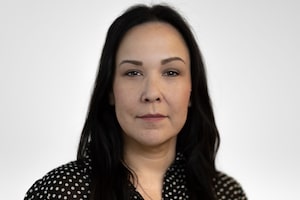The expert panel hired by Thunder Bay's Police Service Board was established after a flurry of reports, recommendations, investigations, allegations of corruption and criminality, and human-rights complaints.David Jackson/The Globe and Mail
The time for new leadership and fundamental reforms is now if there’s any hope left for the embattled Thunder Bay police force, the independent expert panel hired by the city’s Police Services Board says.
Alok Mukherjee, head of the expert panel and former chair of the Toronto Police Services Board, says it became clear to the panel after community consultations this summer that the right leadership needs to be in place to make significant changes.
Mr. Mukherjee will present what the panel is calling an “urgent” memo titled Turning The Page at the police board meeting Tuesday.
The board was taken over by Ontario lawyer Malcom Mercer last spring, appointed by the province with sole authority over decision-making. Thunder Bay Mayor Bill Mauro, city councillor Shelby Ch’ng and municipal-appointed board member Georjann Morriseau, whose terms will be up by November, are also on the board.
It established the expert panel as it buckled under a flurry of reports, recommendations, investigations, allegations of corruption and criminality, and human-rights complaints.
“It was obvious to us that this was the window of opportunity with both the selection of a new chief getting under way, and the process to appoint a new board also happening,” Mr. Mukherjee told reporters at a recent technical briefing ahead of the release of the report.
The panel has several members with extensive police governance experience, including former Toronto Police Service deputy chief Keith Forde and Mark Baxter, president of the Police Association of Ontario. It also includes Indigenous lawyer Candice Metallic, who was part of the 2018 Ontario Civilian Police Commission investigation by Murray Sinclair, and Janine Seymour, former policy adviser for Grand Council Treaty #3.
The group spent time in Thunder Bay over the summer meeting with almost 100 stakeholders and organizations, including many of the service’s members.
Three officers from Thunder Bay police force facing misconduct charges
Mr. Mukherjee told media that it’s clear the community is no longer willing to accept the status quo and be idle about its policing issues.
He said changes can begin to happen now in three areas including the hiring of a new police chief, board appointments and labour relations within the service.
“We need to think about policing of Thunder Bay, from a regional-hub perspective as opposed to only the city of Thunder Bay,” Mr. Mukherjee said.
Mr. Mukherjee said the selection process for the new police chief needs to be based on principles of Equity, Diversity and Inclusion (EDI). The selection committee must include First Nations representation – both locally with Fort William First Nation and the remote communities further north.
The panel said the success of a new police chief will depend on an open and fair selection process. Its profile of the “ideal candidate” is based on the panel’s expertise and community consultations.
The panel identified a list of 12 characteristics the new police chief should have and that preference should be given to an Indigenous or other racialized candidate who has demonstrated police leadership with the desired attributes.
While Mr. Mukherjee said they aren’t specifying whether the new hire should be internal or external, they’re hearing “loud and clear” that people want someone from the outside.
The panel is also pushing for changes to the board’s structure and appointment process, including expanding its membership from five to seven members. In addition, it wants to remove the local residency requirement “due to the unique nature of Thunder Bay as the regional hub of Northwestern Ontario and the need for the board to be reflective of the communities the Police Service serves.”
In an expanded seven-member board, at least three should be First Nations. The panel is also calling for a full-time paid chair position and that the chair and vice-chair positions be five-year terms.
As part of the regional-hub approach, the panel is also calling on both policing and non-policing resources outside of the service, both Indigenous and non-Indigenous, to work together.
“So many of the people that come in contact with the police are people who are carrying a lot of trauma, historical, collective, personal trauma, he said. “And they cannot be simply seen as targets of policing, they have to be understood and dealt with, with empathy and compassion.”
He said the same has to apply to members of the service.
“When they are under stress and they’re having a crisis, the service needs to treat them with empathy and compassion and give them the support, because the principle is hurt people, hurt people,” he said.
After hearing from the community, stakeholders and members of the service, he said the panel also felt issues related to the internal labour relations of the service needed to be acted upon quickly.
He said the board needs to implement a trauma-informed practice and establish an office focused on human rights, equity, diversity and inclusion that would have a very clear mandate in the areas of labour relations and human-resources management.
The panel anticipates to release its full report in early January.
Editor’s note: Georjann Morriseau is a municipal-appointed board member, not a provincial appointee as stated in an earlier version of this article.
 Willow Fiddler
Willow Fiddler